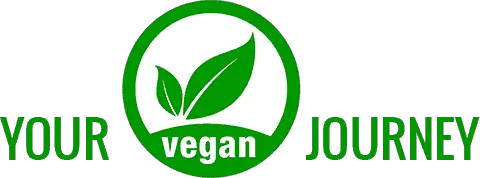A simple “yes” or “no” answer to whether vegans can drink coffee wouldn’t suffice given that there are so many varieties of the beverage. When someone asks if they can drink coffee as a vegan, what they usually mean is can they continue to have whatever coffee-containing drink they enjoyed before becoming vegan.
It could be anything from black coffee to a decaf triple venti, non-fat, half-sweetened, extra shot caramel latte. You get the idea.
But, if one had to sum it up, is coffee considered vegan? Coffee itself (black coffee) is vegan. It’s composed of water and various compounds extracted from coffee beans during the brewing process.1 Hence, it’s 100% plant-based. Problems for vegans arise when other ingredients are added because dairy is common in coffee beverages.
Like tea, coffee is an aromatic beverage—one having a pleasant odor from plants or spices—derived from brewing plant matter in water. The difference is that coffee brews beans instead of greens.
So, any kind of aromatic beverage, on its own, is considered vegan-friendly until non-vegan ingredients are added after the fact.
Vegan Coffee Varieties
Black Coffee (Arabica, Robusta, Liberica)
While many varieties are grown, two coffee plants, Coffea arabica, and Coffea robusta account for 99% of the commercial crop.2
Coffea liberica is another less common variety.3
Black coffee is considered vegan regardless of whether the beans used to make it are marketed as Colombian, French, Italian, etc. The region might be relevant for those with environmental or ethical (e.g. fair trade) concerns, but for being considered vegan it’s irrelevant.
The region has more to do with flavor and quality. Colombia and Brazil are the world’s leading coffee-producing countries because they have tropical rain forest climates that are conducive to coffee production.
Other regions with ideal environments include Mexico and Central America, Indonesia, and a few African countries. Knowing where a given batch of coffee beans are grown is important to both coffee producers and consumers because the quality and flavor of coffee depend largely on the region where the plant is grown.2
“Cat Poop Coffee”: The One Exception
Yes, you read that right.
If there is one type of coffee bean that would render even a cup of plain black coffee non-vegan it would probably be kopi luwak, the coffee made from cat poop.
This used to be a fringe coffee, but it’s becoming more common these days so I’m mentoning it here.
Kopi luwak is made from coffee beans that have traversed the GI tract of a cat known as the Asian palm civet. Along the intestinal journey, the beans are subjected to a combination of enzymatic, acidic, and fermentative treatment.
Gastric juices and digestive enzymes permeate the coffee beans breaking down the proteins which alters the amino acid composition, taste, and aroma of the coffee in a way that a lot of folks find desirable.
The beans begin to malt and germinate which is thought to reduce bitterness.4
In the past, the drink would probably have been considered vegan because the beans were simply collected in forests and coffee plantations after being excreted.
But now that international demand for the delicacy has increased, most producers have taken to caged production methods.5
Coffee w/Sugar Only
Above, I’d have like to have said black coffee with and without sugar, but coffee with sugar only isn’t considered black coffee for whatever reason.
I mention this one because the most prudent of vegans sometimes take issue with consuming processed sugar, as most of the white sugar produced in North America is thought to be purified with bone char.
But, most vegans don’t go out of their way to avoid white sugar, and PETA seems to endorse taking a less strict approach.6
While it is admirable to go the extra mile in avoiding ingredients that may or may not have been processed with the help of animal products, just know that it’s not expected of you.
If you want to avoid anything sweetened with white sugar, you can always opt for organic sugar because it foregoes bone char treatment. In fact, many coffee vendors like to use organic hippy ingredients and raw/turbinado sugar is fairly common in coffee shops and cafes.
Espresso
Plain espresso is vegan for the same reasons regular black coffee is vegan. It’s the same beans, but a different brewing method is used to result in a dark and strong coffee.
The word espresso in Italian means “pressed out.” In this case, it describes how high-pressure steam forces water through the finely-ground coffee. The pressing process takes 25 to 30 seconds.7
The strength and color of the coffee is due to the water-to-coffee ratio (about twice the coffee is used) and the fact that the beans are roasted until almost black.
Caffè Americano
A caffè Americano is vegan because it’s just another version of the espresso with where more water is added.
It’s prepared by diluting an espresso with extra hot water, which gives it a similar strength to espresso, yet a different flavor.
The strength of a Caffe Americano depends on the number of espresso shots and the amount of water added.
Iced Coffee
Iced coffee is a popular beverage in Japan and it’s becoming increasingly common in the US, Europe, and other regions.
In its most basic form, it’s made from just coffee beans, water, sugar, and sometimes cream. Just opt for dairy-free creamers like soy or almond milk.
For more info on one of the most common non-dairy creamer substitutes, make sure to check out the article on the vegan status of almond milk.
Instant Coffee
I sometimes get asked if instant coffee is vegan. It has a different texture than regular coffee which leads some to wonder whether any other ingredients are used.
Fortunately for those too busy to prepare drip coffee, instant coffee is always vegan.
Manufacturing of instant coffee uses two main methods: freeze-drying and spray-drying.
The former involves freezing coffee concentrate to form a solid mass and then breaking it into small particles that are then heat-dried.
Spray-drying involves taking a strong extract of coffee and spraying it through a jet of hot air, which evaporates the water resulting in dried coffee particles.8
With either manufacturing process, instant coffee is still vegan.
Caffé Latte with Dairy Substitute

The caffè latte aka the café au lait or café con leche is a classic coffee drink you’ll find in nearly every coffee shop.
It sounds fancy but it just means coffee with milk.9
In fact, café con leche literally means “coffee with milk” in Spanish. While “milk” originally meant cow milk, dairy can be substituted in most coffee shops.
The drink is made with double-strength coffee with equal parts of hot milk—either dairy or plant-based. Just ask for soy, almond, or coconut milk and you’re in business.
As far as I know, there are no vegan Thai lattes available in coffee shops because the Thai latte is made with condensed milk, a dairy product for which there are no common vegan substitutes.
The use of condensed milk makes the latte heavier and sweeter.
Caffé Mocha, Creamless with Dairy Substitute
A caffè mocha, aka mochaccino, is the chocolate version of the caffè latte described above. You’ll want to use the same modification—soy, almond, or coconut milk. Also, unlike the regular latte, this version tends to come with whipped cream.
Until vegan-friendly whipped creams become more mainstream, you’ll have to forego the whipped topping.
Flat Whites with Plant Milk
A flat white is like a latte, but it uses a lot less milk. It consists of an espresso drink with microfoam (milk steamed to produce small, fine bubbles, and a velvety consistency).
It’s a great beverage for those who like lattes, but prefer less volume and microfoam, and a higher coffee-to-milk ratio.
As always, swap out the dairy milk for almond, soy, or coconut.
Is Decaf Coffee Vegan?
Currently, over 20% of the coffee consumed worldwide is decaffeinated.2 And folks sometimes want to know if the process of decaffeination involves any non-vegan practices.
Yes, caffeine-free coffee is vegan. The caffeine is typically removed by soaking green coffee beans in water or steam and then extracting the caffeine from the water using a solvent like ethyl acetate or methylene chloride.
Methylene chloride is a controversial chemical in terms of health, but it doesn’t pose a problem for ethical vegans. It’s controversial because it’s thought to be a carcinogen.
In amounts used to in the food industry, it’s considered safe because the FDA limits its concentration to 10 ppm (parts per million).2
Ethyl acetate is not only vegan but plant-based as it occurs naturally in fruits and veggies.2
Apparently, there’s also a GMO decaf coffee in the works—researchers are producing caffeine-free coffee beans through genetic engineering.8,10,11 Or at least trying to.
I know a lot of health vegans do like to keep it all-natural, so if you want to avoid using chemically treated beans, some manufacturers use non-chemical decaffeination treatments, like filtering the water used for soaking with activated charcoal.
This variety is usually labeled as “water-processed” decaffeinated coffee.
Environmental Concerns
Like with any crop, the cultivation of coffee does accompany exploitation and negative environmental impacts.
To grow a crop, you have to clear land which always results in the displacement of animal habitat and the need for labor. So, these issues are not unique to coffee cultivation.
However, the environmental and social impact of coffee bean cultivation does range quite a bit with some practices being much more eco and worker-friendly than others. Whether it’s organic production or shade-grown coffee, options for sustainable cultivation do exist.
However, even if you want to purchase mainstream products not marketed as being sustainable, just know that sustainability concerns around coffee production don’t render coffee products non-vegan if no animal products are listed on the ingredients panel.
If these issues concern you, you’ll definitely want to opt for coffee that’s labeled organic and fair trade certified.
Just make sure the claims are legitimate because reports have continually shown that many companies continue to market coffees as environmentally and socially “sustainable” absent any third-party certification.12
Can Vegans Drink Coffee? Conclusion
So, coffee is vegan unless dairy products are added. Dairy usually comes in the form of milk, creamers, dried powders (dry milk, and powdered creamers). Plant milks are the obvious alternative here.
In recent days people have also taken to odd practices like putting butter in their coffee—think the paleo crowd and their Bullet Proof coffee. If you like saturated fat in your coffee, you can opt for coconut or MCT oil.
Keeping it vegan while consuming coffee is easier than ever these days. Most mainstream coffee shops are up with current dietary trends and chains like Starbucks usually have a vegan variant for each of their most popular drinks.
That’s it for now. Thanks for reading.
References
- Understanding Food: Principles and Preparation (Page 554). Amy Brown – Wadsworth Cengage Learning – 2011. ISBN-10: 0-538-73498-1
- Understanding Food: Principles and Preparation (Page 555). Amy Brown – Wadsworth Cengage Learning – 2011. ISBN-10: 0-538-73498-1
- Ensminger AH, et al. Foods and Nutrition Encyclopedia. CRC Press, 1994. ISBN 9780849389801
- Marcone, M. (2007). In Bad Taste? The Adventures and Science behind Food Delicacies. Toronto: Key Porter Books. ISBN 9781552638828. https://archive.org/details/inbadtasteadvent0000marc
- Kopi Luwak Production. https://en.wikipedia.org/wiki/Kopi_luwak#Production
- Is Sugar Vegan? PETA. https://www.peta.org/living/food/is-sugar-vegan/
- Geise J. Developments in beverage additives. Food Technology 49(9):63–72, 1995.
- Understanding Food: Principles and Preparation (Page 556). Amy Brown – Wadsworth Cengage Learning – 2011. ISBN-10: 0-538-73498-1
- Understanding Food: Principles and Preparation (Page 557). Amy Brown – Wadsworth Cengage Learning – 2011. ISBN-10: 0-538-73498-1
- Ashihara H, H Sano, and A Crozier. Caffeine and related purine alkaloids: Biosynthesis, catabolism, function and genetic engineering. Phytochemistry 69(4):841–856, 2008.
- GM plants offer hope of real decaf coffee. The Guardian. https://www.theguardian.com/science/2003/jun/19/gm.science
- Giovannucci and Koekoek (2003). The State of Sustainable Coffee: A Study of Twelve Major Markets. https://papers.ssrn.com/sol3/papers.cfm?abstract_id=996763

